From the Editor: Basking in Moonlight
The Academy should do the right thing and reward the excellence of Moonlight
By Randy Shulman on February 23, 2017 @RandyShulman

A long time ago, in a galaxy far, far away, I labored as a film critic.
Labored is probably too strong a word — I actually enjoyed my years writing about film. It’s what got me into journalism and, tangentially, led me to start Metro Weekly. And while I don’t miss having to attend roughly 300 films a year, I’m no less passionate about the medium.
Over the years, the magazine has featured expansive coverage of movies in general, with specialized focus in LGBTQ cinema. One of our proudest accomplishments has been our exhaustive coverage of movies at the Reel Affirmations film festival, which we started covering in 1994. As a result, we have assembled well over 1,000 reviews of all types of LGBTQ films — from features to documentaries to musicals to the shortest of shorts. Much of the repository is still on our site, starting with the 2003 festival. And glancing over those lists of films reminds you of how far LGBTQ cinema has come in 23 years.
In 2009, Sean Bugg, my co-editor at the time, and I decided to celebrate the Oscars with a cover story entitled “25 Gay Films Everyone Should See.” It took us a week of arguing to sort that first list (I was adamant that The Birdcage was a redundant addition, given we had La Cage aux Folles on it).
We followed in 2011 with “25 Gay Films Everyone Should See: The Sequel” (still adamant about no Birdcage) and again in 2013 with “25 Gay Films Everyone Should See 3D” (no Birdcage!). I actually had a master plan to do “The Final Chapter” and “A New Beginning,” but we never got around to it. Instead, we took side journeys. We looked at 13 camp films in 2012, and in 2015, with the help of the DC Shorts Film Festival, we focused on — what else? — LGBTQ shorts.
For this year, particularly with the rise of Moonlight, it became clear we celebrate African-American essentials of the LGBTQ cinemagoing experience. Working with contributor André Hereford, himself a former film industry professional, a strong list of 15 movies was agreed on, a list we all felt encompassed a perfect range of everything from drama to comedy to camp. The collection provides a phenomenal overview of cinematic evolution and achievement within a black LGBTQ framework.
Nowhere is this more evident than in this year’s Oscar nominee Moonlight. Yes, it’s a gay film. Yes, it’s an African-American film. But it’s also a phenomenal film without those classifications. It’s a rare achievement in filmmaking; director Barry Jenkins and his astonishing cast achieve an emotional poetry that eludes even the most accomplished veteran filmmakers.
With a narrative that deals with gay coming of age issues while living in a rough area of Miami in the ’80s, the movie defies both conventions and expectations as it follows the circumstances and quiet yet significant moments that define and shape a young boy’s life, not necessarily in the best possible way, but always in the most meaningful one. The young protagonist’s salvation is in both his tentative and resolute acceptance of his sexuality. But Moonlight really has less to do with being gay and more to do with understanding one’s heart. It is, above and beyond all else, a story of finding, feeling and learning love.
The Academy, so thoughtless in its perpetual rewarding of white actors, directors, writers and film craftspersons, felt a sting last year with the #oscarssowhite campaign. They’ve been handed a gift with Moonlight, a chance for redemption, a chance to set themselves on a better path to future diversity in the films they acknowledge with nominations and ultimately honor with Oscars.
If nothing else, the Academy should do the right thing and bestow Moonlight with its top honor. And the beautiful thing is that it’s not a gratuitous vote (“We can award something gay and black and that buys us another 20 years of voting white!”). Moonlight actually deserves the Best Picture Oscar. For its raw, beautiful, engrossing intensity, for its ability to make you feel more deeply than a film has made you feel in years, if not decades. For its proof that you don’t need to spend $150 million to create something astonishing. All you need is a great script, a director with a vision, and a gifted cast.
Finally, Moonlight deserves the benefits that come with an Oscar — a re-release in theatres and the prospect of a larger audience. An audience who may come away surprised at what an authentic masterpiece looks like.
In the Gay Film ‘Throuple,’ Three is Most Definitely a Crowd
The gay rom-com "Throuple" dips a toe into non-monogamy with smarts and sensitivity but stays too close to the surface.
By André Hereford on March 22, 2025 @here4andre
It takes two to tango, with good reason -- add one, and the footwork gets way more intricate, to say nothing of where all the other parts go. An adventurous couple and an enthusiastic third try out their footwork, and stumble through the dance, in the Brooklyn-set queer indie Throuple, a notable feature debut for director Greyson Horst.
Michael Doshier wrote the script and stars as perpetually single singer-songwriter Michael, who lives too co-dependently with best friend and fellow musician Tristan (Tristan Carter-Jones). She's getting more and more serious with her girlfriend Abby (Jess Gabor), so, essentially, Michael's already playing third wheel in their relationship.
Attackers Use Grindr to Lynch Gay Israelis in Haifa
Groups of masked assailants are reportedly using the gay dating app to lure LGBTQ Israelis into meeting to maim or kill them.
By John Riley on March 16, 2025 @JRileyMW
Masked attackers in Israel are reportedly using Grindr to lure and entrap members of the LGBTQ community to severely harm them.
According to reports, the assailants are creating fake profiles on the popular dating app and arranging meetings in remote locations in the city of Haifa.
The victims are then ambushed and reportedly stabbed with sharp weapons. A few assailants have attempted to carry out lynchings.
The Aguda, an LGBTQ task force, documented at least ten such incidents in recent months, reports the Jerusalem Post.
But some victims have chosen not to report the attacks, making it more difficult for police to track down and arrest offenders.
This Week’s Advertisers: Spring Arts Preview – March 20, 2025
Please support our advertisers in the March 20 edition of Metro Weekly featuring our annual Spring Arts Preview.
By Randy Shulman on March 22, 2025 @RandyShulman
Metro Weekly is an independent advertiser-supported magazine and website.
Please support our advertisers and help keep LGBTQ journalism strong. Click the links below to the individual advertisers in our most recent issue, browse the magazine above, or Click Here to open the issue in full.
Arts & EntertainmentAlden Theatre: Jason Robert Brown & Friends
Awesome Con 2025
Barns at Wolf Trap
Bethesda Film Festival
Birchmere: Lady Blackbird, Scott Thompson
Broadway at the National: Kimberly Akimbo
Everyman Theatre: The Mystery of Irma Vep
Support Metro Weekly’s Journalism
These are challenging times for news organizations. And yet it’s crucial we stay active and provide vital resources and information to both our local readers and the world. So won’t you please take a moment and consider supporting Metro Weekly with a membership? For as little as $5 a month, you can help ensure Metro Weekly magazine and MetroWeekly.com remain free, viable resources as we provide the best, most diverse, culturally-resonant LGBTQ coverage in both the D.C. region and around the world. Memberships come with exclusive perks and discounts, your own personal digital delivery of each week’s magazine (and an archive), access to our Member's Lounge when it launches this fall, and exclusive members-only items like Metro Weekly Membership Mugs and Tote Bags! Check out all our membership levels here and please join us today!
The Magazine
-
Most Popular
 'Porn Star University' Started by Gay-for-Pay Creator Andy Lee
'Porn Star University' Started by Gay-for-Pay Creator Andy Lee  Ban on Homosexuality Reinstated in Trinidad and Tobago
Ban on Homosexuality Reinstated in Trinidad and Tobago  Utah Bans the Pride Flag
Utah Bans the Pride Flag  Lesbian Tennis Star Defects from Russia
Lesbian Tennis Star Defects from Russia  Trump's FDA Cracks Down on "Poppers"
Trump's FDA Cracks Down on "Poppers"  The Commanding Style of Nathan Lee Graham
The Commanding Style of Nathan Lee Graham  Win a Pair of Weekend Passes to Cherry 2025
Win a Pair of Weekend Passes to Cherry 2025  Gay Porn Star Tim Kruger Dead at 44
Gay Porn Star Tim Kruger Dead at 44  Popular Music: Spring Arts Preview 2025
Popular Music: Spring Arts Preview 2025  3 Million People Could Die Due to HIV Funding Cuts
3 Million People Could Die Due to HIV Funding Cuts
 Ban on Homosexuality Reinstated in Trinidad and Tobago
Ban on Homosexuality Reinstated in Trinidad and Tobago  Lesbian Tennis Star Defects from Russia
Lesbian Tennis Star Defects from Russia  Becca Balint Introduces Trans Health Care Bill
Becca Balint Introduces Trans Health Care Bill  Gay Congressman Chris Pappas Poised to Launch Senate Bid
Gay Congressman Chris Pappas Poised to Launch Senate Bid  Utah Bans the Pride Flag
Utah Bans the Pride Flag  3 Million People Could Die Due to HIV Funding Cuts
3 Million People Could Die Due to HIV Funding Cuts  Celebrities Urged to Boycott Hungary Over Pride Ban
Celebrities Urged to Boycott Hungary Over Pride Ban  The Commanding Style of Nathan Lee Graham
The Commanding Style of Nathan Lee Graham  Texas 'Sexual Content' Bill Would Criminalize Literary Works
Texas 'Sexual Content' Bill Would Criminalize Literary Works  Awesome Con Celebrates the Geek in All of Us
Awesome Con Celebrates the Geek in All of Us
Scene
Metro Weekly
Washington's LGBTQ Magazine
P.O. Box 11559
Washington, DC 20008 (202) 638-6830
About Us pageFollow Us:
· Facebook
· Twitter
· Flipboard
· YouTube
· Instagram
· RSS News | RSS SceneArchives
Copyright ©2024 Jansi LLC.




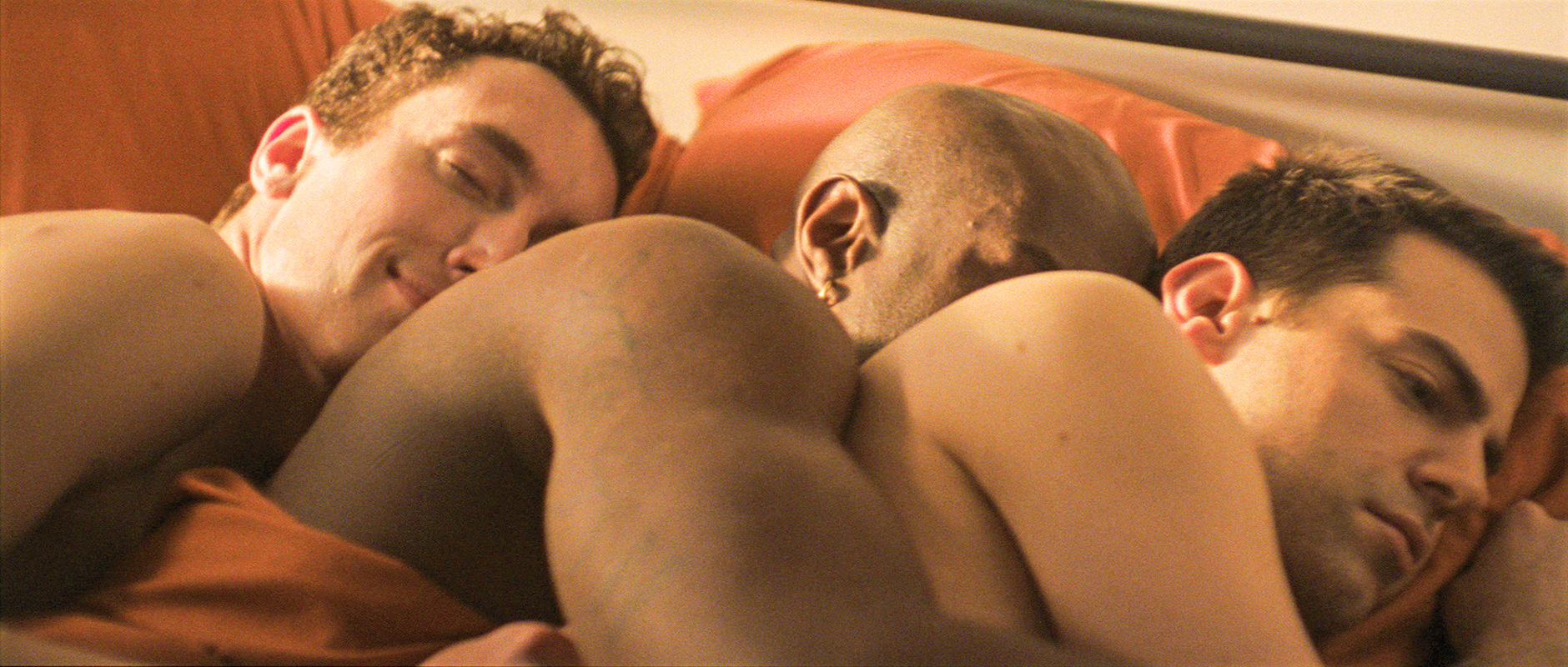

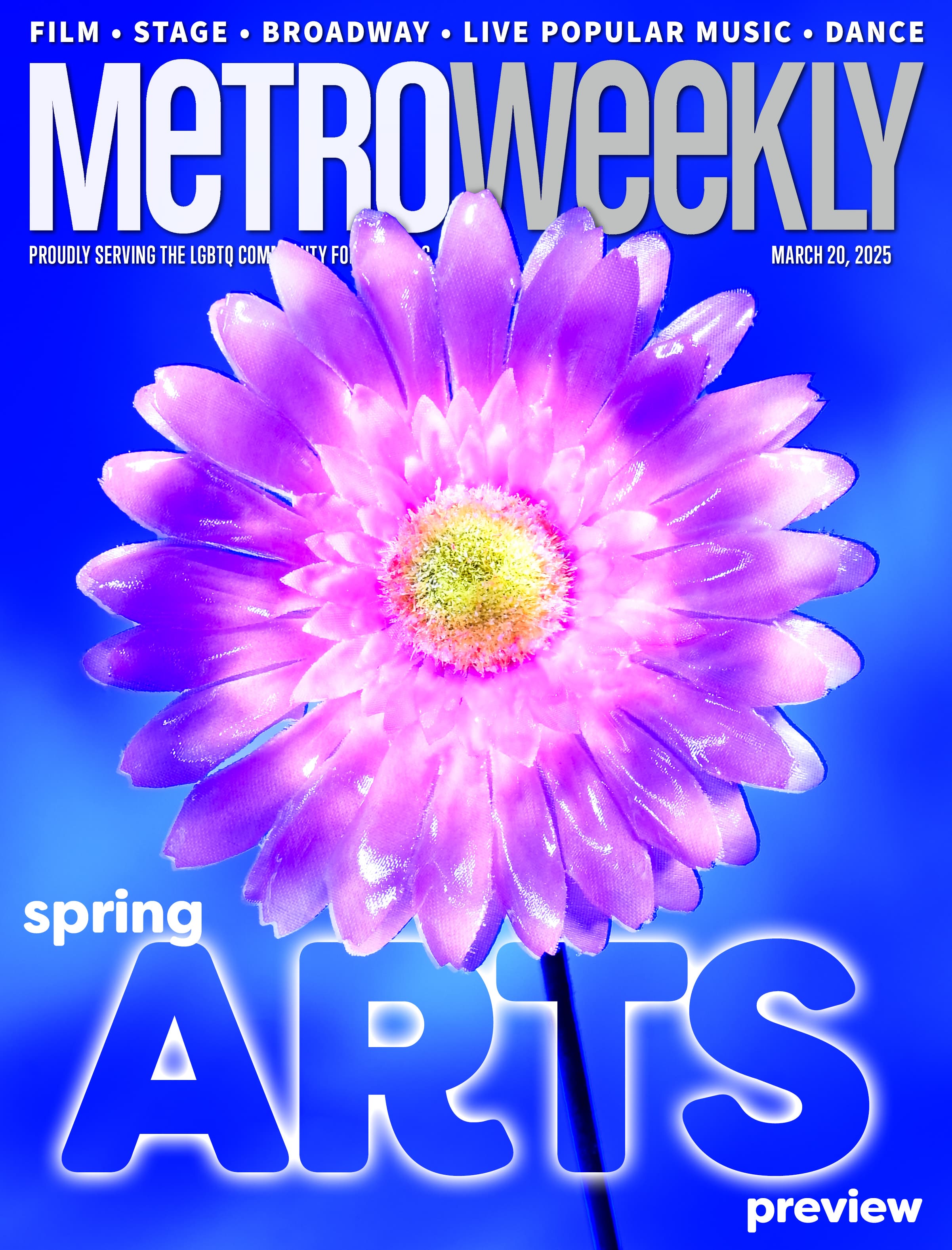
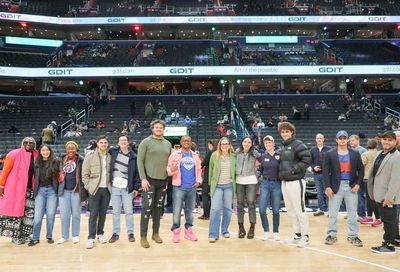
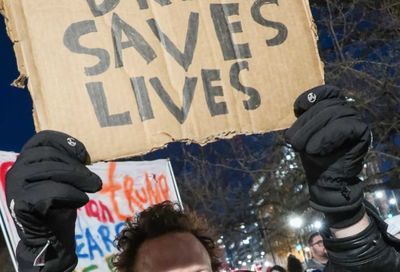
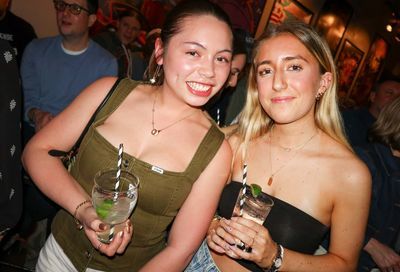
You must be logged in to post a comment.